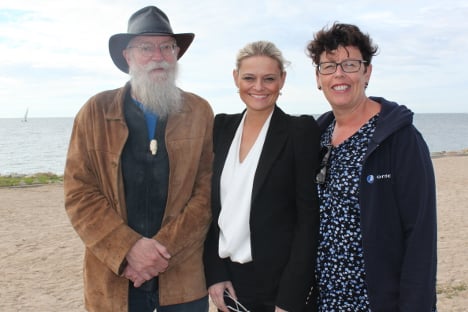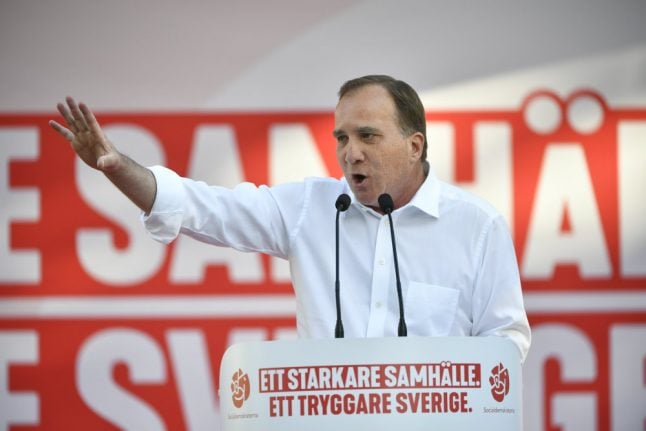It’s a sunny afternoon on the Baltic island of Gotland. Boats criss-cross the waves off the shores of Visby, the normally staid Hanseatic hamlet that is currently abuzz with the Almedalen political week. The cobblestone street are dotted with tents, and teaming with people.
Looking out over the Baltic it’s easy to remember that its waters not only connect Gotland to mainland Sweden, but also to the other Nordic countries. Thus, it serves as a fitting venue for exploring the Nordic way in more detail.
And who better to speak with than Brit Bohlin, the former Swedish MP who is now secretary general of the Nordic Council, an inter-parliamentary group based in Copenhagen.
Founded in 1952, the Council features representatives from Norway, Denmark, Finland, Sweden, and Iceland, as well as the Faroe Islands, Greenland, and the Åland islands. The group also works closely with the Nordic Council of Ministers, an intergovernmental body established in 1971.
“If you look at our countries, our common history is of course important,” she begins. “But we’re also rich countries which gives us a lot possibilities.”
A demonstration on sustainable fashion with designer Lina Sofia Lundin (right)
Bohlin goes on to list the region’s hallmark high-tax, high-service welfare states and members’ generally equal societies as things that set the Nordic countries apart.
“Without bragging too much, the Nordic countries have a lot to offer and we want to share what we know,” she adds.
But when quizzed about the secret of Nordic-style sustainability, Bohlin is at a loss.
“Hmmm. It feels so natural, it’s difficult to answer,” she says after a pause.
“If you look at what we have here in the Nordic countries, our nature is very special, the water is clean, and there are a lots of reasons to take care of the environment for the next generation. So it’s natural to put sustainability at the top of the agenda.”
And the Nordic sustainability agenda is hard to miss at Almedalen this year, with the theme cropping up in a number of seminars being held on “Nordens dag” (‘Nordics’ Day’), a series of events organized by the Nordic Council and the Nordic Council of Ministers.
The scene during Nordens dag at Almedalen
From a seminar on sustainable cities, to a sustainable fashion demonstrations on how to dye clothes using dyes derived from common vegetables, it’s clear to anyone visiting the Nordic Council’s Almedalen exhibition that the region takes sustainability seriously.
Jørgen S. Søndergaard, a senior advisor with Greenland’s representation in Copenhagen who is also on hand at Almedalen, agrees.
“Sustainability is simply a traditional way of surviving, so it’s very natural,” he explains, adding that the Nordics were the first group of countries to establish regional cooperation on sustainable development following the UN in 1992.
“There’s a tradition of dialogue and taking people’s considerations into account that serves as the basis for how politics develop and is common across the Nordic region,” Søndergaard continues. “These days the buzzword is green growth, which exemplifies another good Nordic tradition of people in the region realizing we can make money out of this as well.”
Despite serving as a model for strong regional cooperation on sustainability, the countries of the Nordic region nevertheless face a number of vexing challenges, particularly when it comes to what connects them physically: the sea.
Annika Olsen, the Faroe Islands social minister, expresses concerns about the risks posed by increased shipping traffic on Arctic routes.
“We are a fishing nation and are dependent on the sea and the fish,” she says, adding it would be “devastating” if anything happened to damage the marine ecosystem surrounding the territory.
“Every time we meet, the environment is always on the agenda,” she says.
Concerns about marine ecosystems are no less of a concern to Veronica Thörnroos, infrastructure minister from the Åland Islands, a region that depends on tourists arriving by boat to enjoy the islands’ natural beauty.
Panelists discuss sustainable cities at Nordens dag
“The Baltic Sea means everything to us, and with all the environmental challenges we face there, if we don’t have sustainability on the political agenda, I think that would spell the end for the Åland islands,” she warns.
And Baltic Sea pollution hasn’t escaped examination at Almedalen, with the Nordic Council inviting Swedish filmmaker Folke Rydén to discuss micro-plastic pollution in conjunction with the premier of his documentary film on the topic.
Nordic Council head Bohlin believes the most important sustainability initiative currently underway in the region is the fact that the countries have come together to prepare jointly for the COP21 meetings scheduled to take place in Paris in December, allowing them to speak with one voice.
“That’s never happened before, and it’s very positive,” she says.
Meanwhile, Søndergaard from Greenland, while proud of all that the Nordic countries have accomplished when it comes to sustainability, says there’s one aspect of Nordic life that perhaps shouldn’t be exported.
“The ecological footprint of the Nordic region is much too big. It’s not discussed much, but that’s a fact,” he admits. “We can’t live in a world where everyone has the same ecological footprint as people living in the Nordic countries. That actually wouldn’t be sustainable.”
This article was produced by The Local and sponsored by the Nordic Council and the Nordic Council of Ministers



 Please whitelist us to continue reading.
Please whitelist us to continue reading.